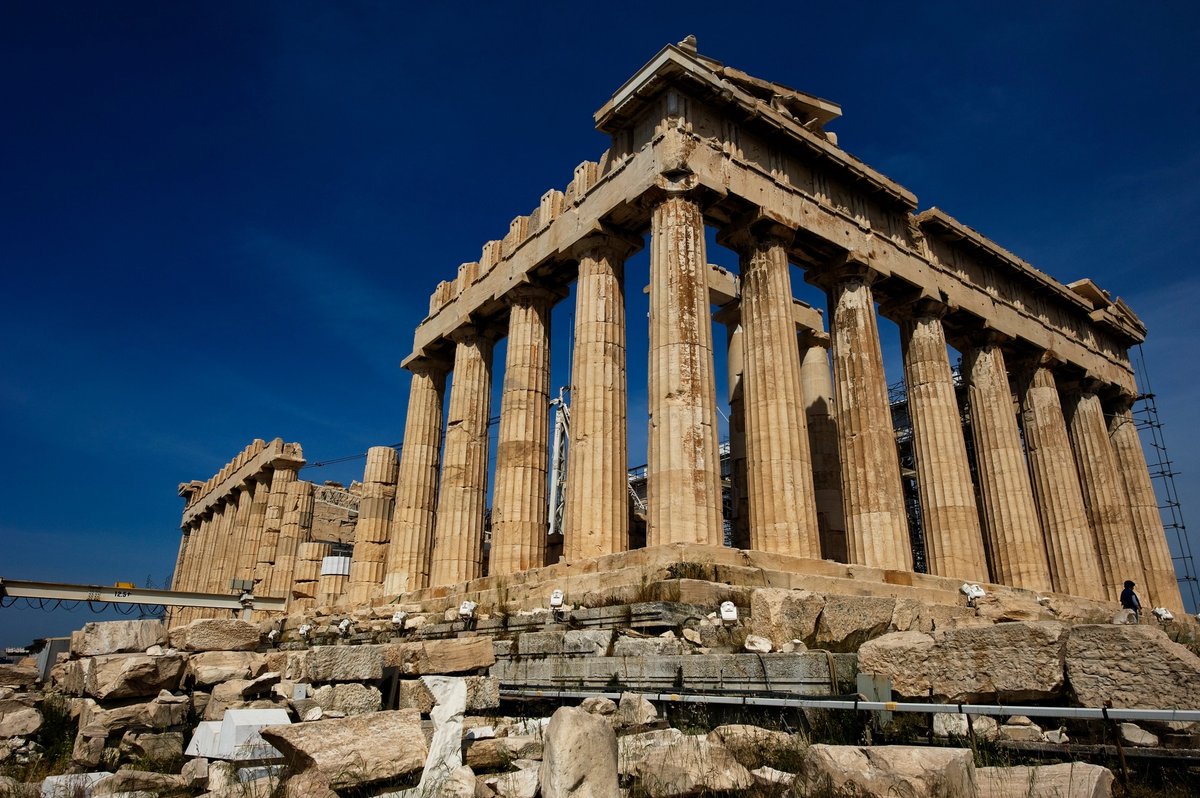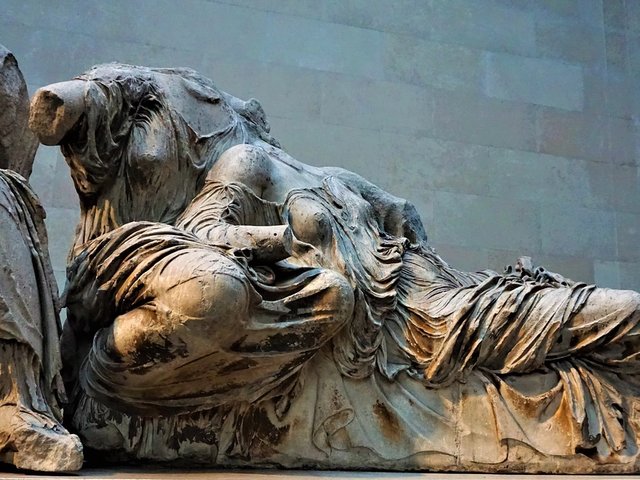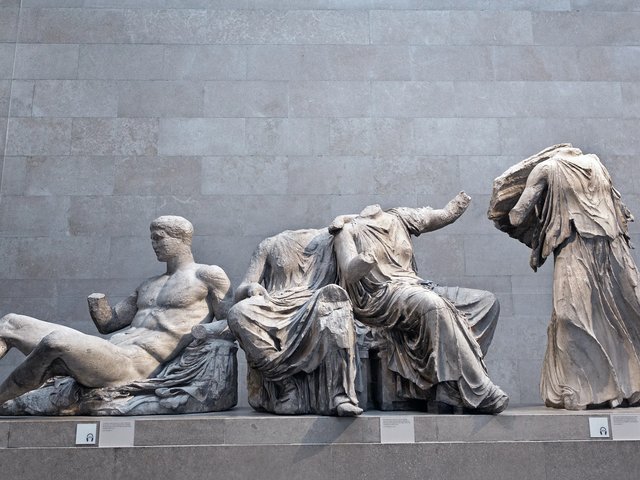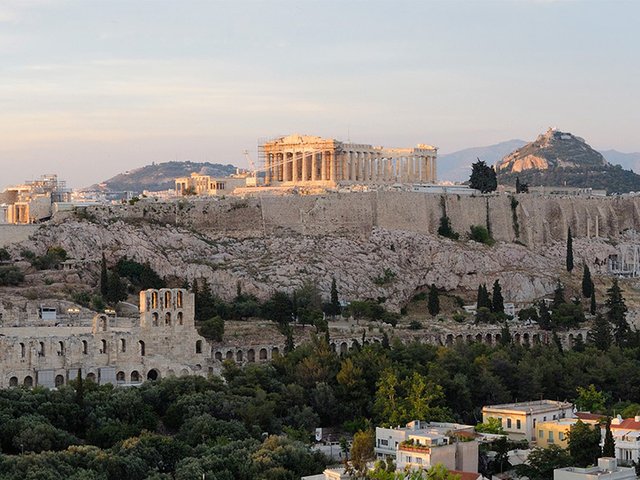President Emmanuel Macron of France is considering lending to Greece a marble frieze removed from the temple of Parthenon, which is currently housed at the Louvre in Paris. According to the Greek news agency ANA, the plan was discussed during recent talks between Macron and the Greek prime minister Kyriakos Mitsotakis, who hopes to secure the loan for the country’s bicentennial independence celebrations in 2021.
The Louvre would, in return, receive a collection of bronze artefacts. “The details will be worked out by the respective culture ministries. This is a temporary exchange,” a Greek government official told ANA. Officials at the Louvre and the Greek Embassy in London declined to comment.
According to the Louvre’s website, the fifth-century BC metope (frieze) illustrates the Centauromachy, a battle between the centaurs (half-man, half-horse) and the Lapiths (a people from the region of Thessalia). “A Lapith woman is being abducted, in a composition that retains much of the Early Classical style,” the museum website says. The metope was sent by the diplomat, Louis François Sébastien Fauvel, to the Comte de Choiseul-Gouffier prior to the French Revolution in 1789.
The move puts renewed pressure on the British Museum in London to reconsider its position over the Parthenon sculptures in its collection, which were transported to Britain in the early 1800s by Lord Elgin. “Elgin, the British diplomat who transported the sculptures to England, acted with the full knowledge and permission of the legal authorities of the day in both Athens and London,” says a statement on the museum website.
The British Museum trustees say that the Greek government has never asked to loan the sculptures, only “for the permanent removal of all the sculptures in its care to Athens”. Crucially, they add: “The [museum] trustees will consider (subject to the usual considerations of condition and fitness to travel) any request for any part of the collection to be borrowed and then returned.” However, the director of the Acropolis Museum in Athens, Dimitris Pandermalis, said earlier this year that the “return in full of the Parthenon Marbles is the one and only solution”.
Paul Cartledge, a professor of Greek Culture at the University of Cambridge, who is the vice chairman of the campaign group the British Committee for the Reunification of the Parthenon Marbles, tells The Art Newspaper: “We hope for and expect much more: the reunification in the Acropolis Museum of all bits of the Parthenon held in museums outside Greece—not only [the sculptures] from the British Museum. The Greek government will certainly reciprocate most handsomely with spectacular loans, such as those going to the Louvre no doubt will be.” Other commentators have said that it is time to re-frame the long-running debate over ownership of the Parthenon sculptures.





